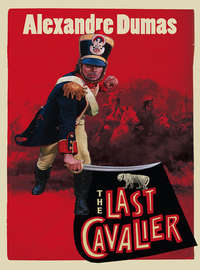Sadece Litres'te okuyun
Kitap dosya olarak indirilemez ancak uygulamamız üzerinden veya online olarak web sitemizden okunabilir.
Kitabı oku: «The Last Cavalier: Being the Adventures of Count Sainte-Hermine in the Age of Napoleon», sayfa 5
Bir şeyler ters gitti, lütfen daha sonra tekrar deneyin
Türler ve etiketler
Yaş sınırı:
0+Litres'teki yayın tarihi:
27 aralık 2018Hacim:
1171 s. 3 illüstrasyonISBN:
9780007368754Telif hakkı:
HarperCollins